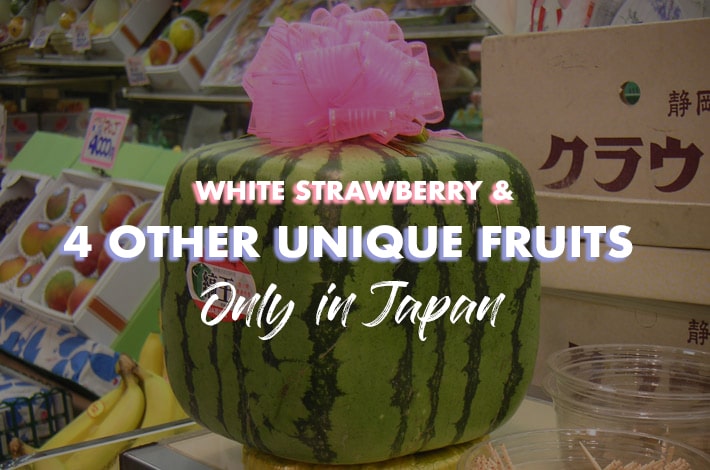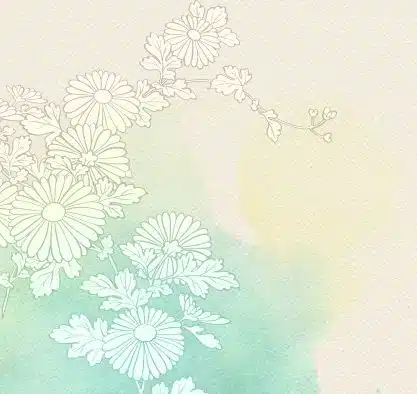This spring, Ikeda Spa is featuring strawberry spa treatments, and you may have heard of white strawberries and how expensive they can get. Before we get to that, let’s talk about fruits in general in Japan.
The Japanese enjoy giving gifts of fruit, especially melons. Some farms cultivate luxury fruits, and these fruits turn out to be unique-looking!
As a result of the great care farmers put into cultivating these fruits, the price tag can sometimes give a shock. For instance, just one pack of white strawberries can cost $40! Can you believe it?

Read on to find out what some fruits are that are unique to Japan, and if your wallet won’t break, maybe you can buy one and try it next time you visit the country.
1. Square Watermelon
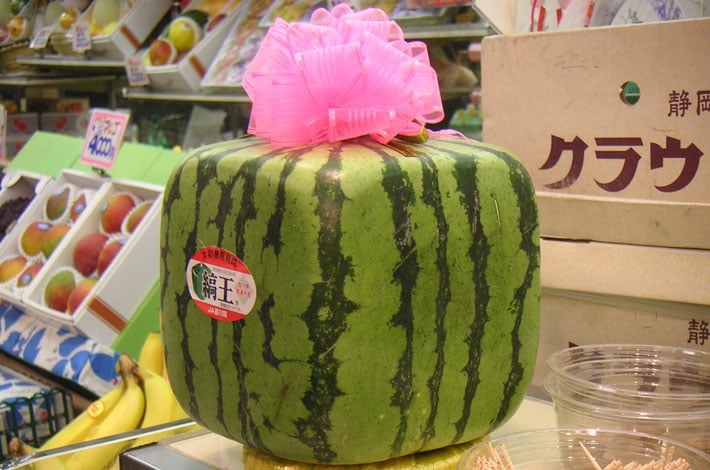
Price: USD $150
This square (actually cubic) watermelon was developed in the 70s by Japanese farmers who intended to create an easier way to store and ship melons. These melons are placed in cubic, glass containers and grow to fill the space.
Although the purpose of these watermelons was for convenience, it turns out that growing cubic watermelons is harder than growing normal melons. On the upside, these novelty fruits are very popular, and farmers can charge out the rear for them!
2. Dekopon
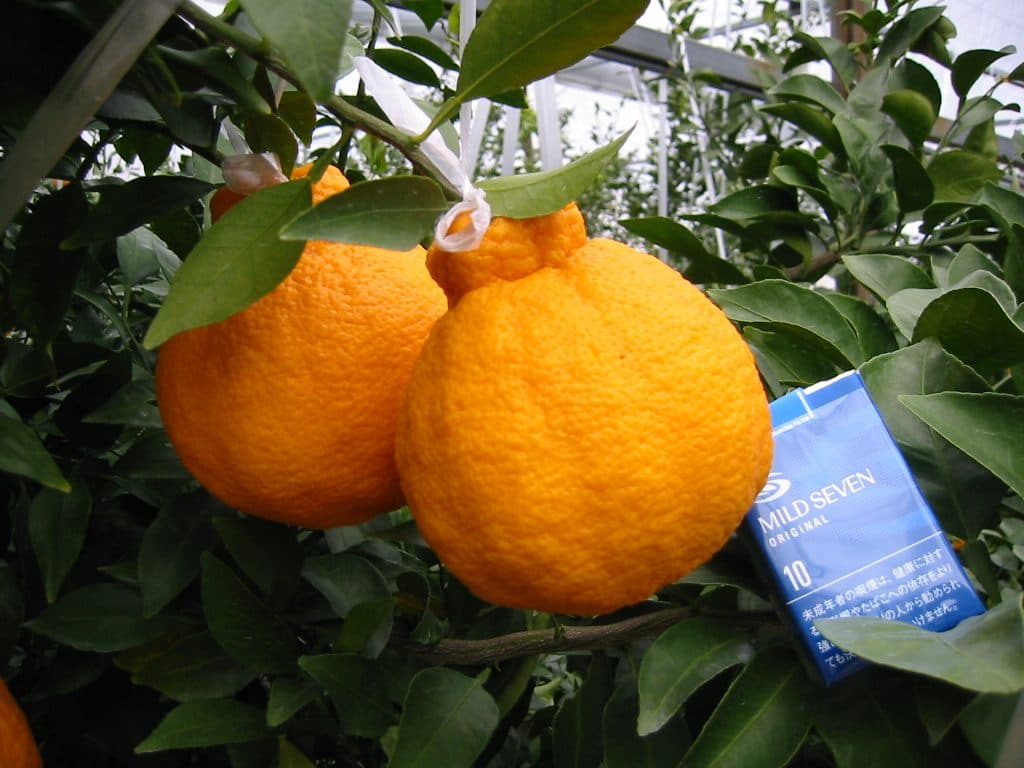
Price: USD $76 for 6
Appearance-wise, the dekopon may look like a boring fruit – it seems like a regular orange. However, dekopon is uniquely Japanese. It is a hybrid of two other citrus fruits engineered in Japan during the 70s. And while it looks like a regular orange, it’s larger and sweeter than your everyday Florida-grown citrus.
Probably the most remarkable thing about the dekopon, oddly enough, is its etymology – where the name came from. The kanji for “
Can fruits get more expensive than this, and a white strawberry?
3. Ruby Roman Grapes
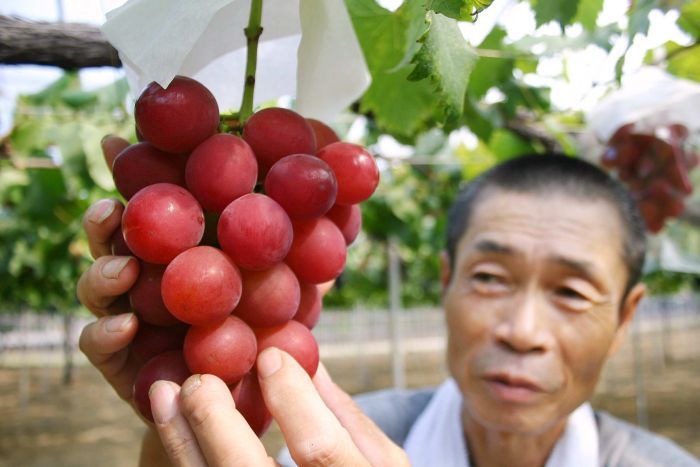
Price: USD $6,400
The Ruby Roman Grapes – the world’s most expensive grapes, sold at $6,400 in a 2011 auction in Kanazawa, Japan. Each grape was about the size of a ping-pong ball, and, since there were 25 in the bunch, it cost about $255 in stores. The grapes must have a sugar content of around 18 per cent and weigh 20 grams each before farmers can sell.
4. Yubari King Melons
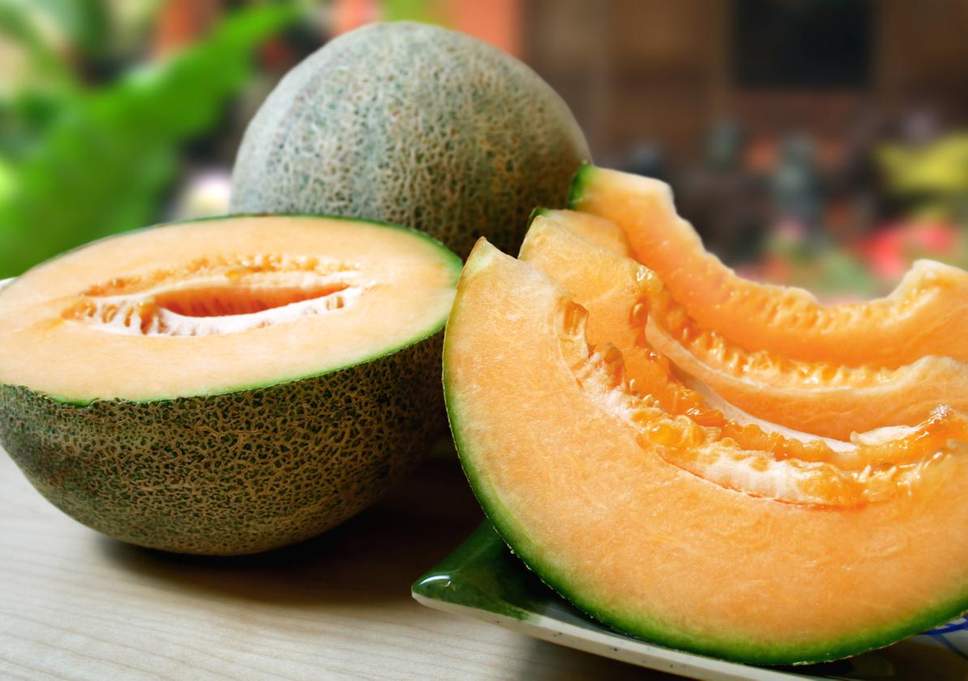
Price: USD $225 for 2
$225 is the best deal for Yubari King Melons, as a pair was once sold for $23,500 (and I thought white strawberry was the most expensive). This melon is highly raved for its sweetness, which is why one can only dream of eating it. Do you know these melons grow in greenhouses and wear “hats” to prevent sunburns?
5. White Jewel / White Strawberry
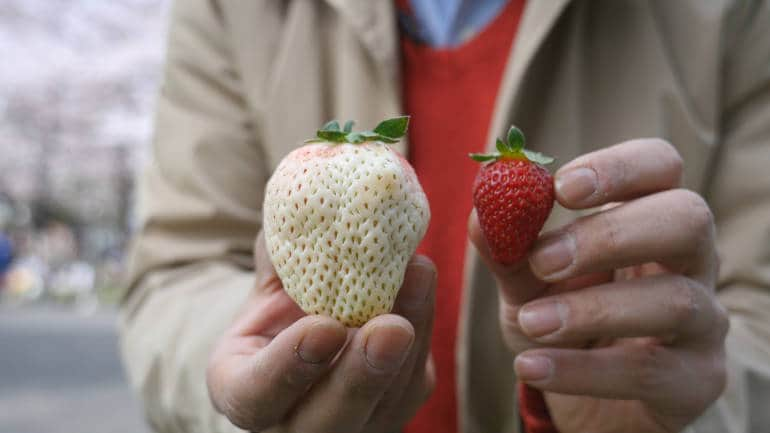
Price: USD $10
There are so many varieties of strawberries in Japan. The Hatsukoi no Kaori, or “Scent of First Love”, is Japan’s first white strawberry. It is different from the pineberry because it is bigger, has softer skin, and more juiciness and sugar content.
This white strawberry may look bleached. However, there are, in fact, no added chemicals when growing them. Inside fruits, there’s a natural chemical called anthocyanin which gives colour. Reduce the sunlight, and it doesn’t activate and keeps the fruit pale!
Indulge in a Japanese Strawberry Spring Spa!
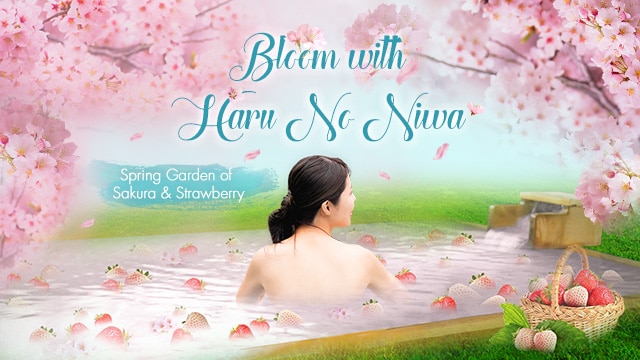
Spring is the most lovely season in Japan, where pink cherry blossoms are all over the country and strawberries are at their best and lowest prices. It is the time couples go on Hanami dates and families go strawberry-picking together.
Schedule some spa me-time and get ready for an authentic Japanese Spring experience at Ikeda Spa. From 1 March to 30 April 2019, spa-goers can bloom with a Haru no Niwa (garden in Spring) inspired spa series featuring two special edition treatments – the Strawberry Hinoki Onsen and Sakura-infused massages.

